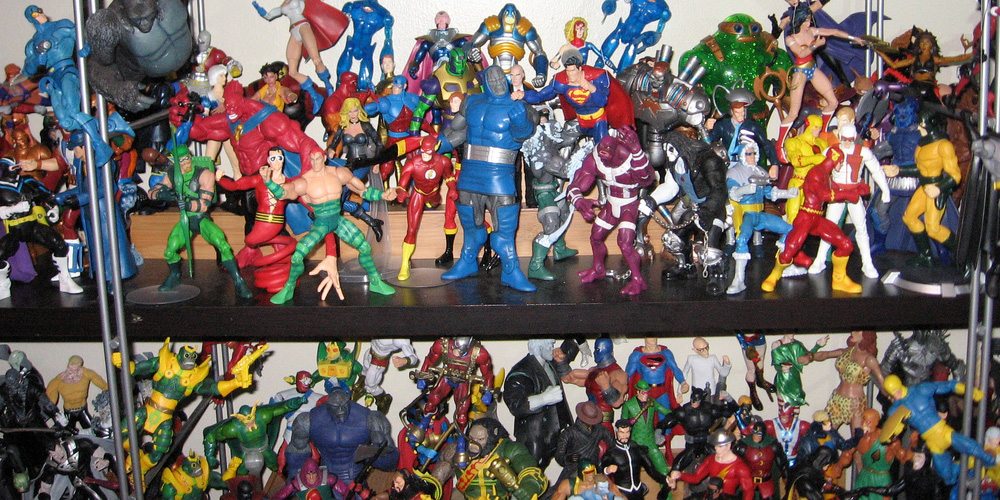 Ender’s Game appears on every serious list of the best science fiction novels ever written, and with good reason. It is a deeply personal coming of age story that somehow puts you believably in the mind of a child chosen to be Earth’s greatest hope against a seemingly unstoppable alien menace. With the upcoming Ender’s Game movie I have a renewed interest in the Enderverse, and was excited to pick up Earth Unaware and Earth Afire, the first two books in a prequel trilogy that finally tells the story of the first Formic War. Spoilers follow.
Ender’s Game appears on every serious list of the best science fiction novels ever written, and with good reason. It is a deeply personal coming of age story that somehow puts you believably in the mind of a child chosen to be Earth’s greatest hope against a seemingly unstoppable alien menace. With the upcoming Ender’s Game movie I have a renewed interest in the Enderverse, and was excited to pick up Earth Unaware and Earth Afire, the first two books in a prequel trilogy that finally tells the story of the first Formic War. Spoilers follow.
Earth Unaware tells the story of first contact between humanity and the aliens that would someday be known as the Formics. Perhaps more interestingly, it depicts the divided, squabbling, flawed human civilization that greets the first invasion. Much of the first novel centers on the struggles of a Venezuelan family aboard the mining ship El Cavador. A family of “free miners,” they have set up mining operations in the Kuiper Belt, at the outer edge of our solar system, so as to avoid the predatory deprivations of corporate miners that have more-or-less monopolized the inner asteroid belt. Unfortunately for them, a corporate mining ship captained by Lem Jukes, the son of the richest man in the solar system, is conducting top-secret tests in the Kuiper belt. What’s worse, Lem decides to “bump” (e.g. claim jump) El Cavador off of the Asteroid it is mining so that he can use it to complete his test. Thus, even as El Cavador’s crew spots the first disquieting images of a large object apparently decelerating at near-light speed towards the solar system, they are diverted by an attack from the corporate ship.
The humans’ internecine squabbles prevent them from getting the word out about the possible invasion until the alien ship draws much closer, at which point interference put off by the alien ship makes communication with the inner system impossible. When first contact is finally made, the ant-like aliens exterminate every human they meet without mercy. On El Cavador, an enterprising teenaged mechanic named Victor devises a way to get a message to the inner system at great risk to himself, even as the crew of El Cavador, their corporate attackers, and others, reconcile their differences to try to stop the alien ship. Victor manages to carry his message of warning to Luna (the moon) aboard a retrofitted “quick ship” (unmanned cargo rocket). Victor arrives on Luna only to find himself arrested and sequestered by petty officials that care more about following rules and regulations than about some “dirt-sucker’s” insane warnings. He learns the difficulty of convincing people of something genuinely new to human experience, especially when they don’t want to believe it.
Earth Afire begins shortly after Victor arrives on Luna. Although he eventually gets the word out, Earth wastes much of the remaining time and is unprepared when the Formics arrive, unceremoniously slaughter the diplomatic envoys sent to greet them, and proceed to land in China, laying waste to everything in site as they terraform the environment to suit their biology. Standing against them are an overpowered Chinese military hampered by the political decision to refuse help offered by other nations, a brilliant Chinese boy that would have been in Battle School if he’d been born a couple generations later, and a handful of special forces operatives fighting in China illegally, including one half-Maori/half-English New Zealand Special Air Service (NZSAS) Captain by the name of Mazer Rackham. Mazer spots a weakness in the Formic landers and achieves the first real victory against them. Meanwhile, Victor and allies he acquired on Luna launch a daring plan to destroy the Formic mothership still in orbit. The second novel ends shortly after Mazer Rackham is arrested, no doubt to face the first of the two court marshals he famously received before leading humanity to victory in the second Formic invasion.
Although best appreciated by someone already familiar with Ender’s Game, Earth Unaware and Earth Afire are solid novels in their own right. Like all of Orson Scott Card’s works, the books are about much more than what is on the surface. Card and co-author Aaron Johnston use the crucible of an alien invasion to lay bare a human society that has evolved technologically without corresponding evolution in morality, society, or government. Here we have a humanity riven with contradictions: so advanced that our species can mine deep space, but still caught up in cannibalistic conflicts for power, control, and wealth. The scariest thing about these books isn’t the prospect of alien invasion, but the way the authors made it completely believable that even in the face of existential threat humans could still be petty, selfish, and stupid. And yet, the bad is not unleavened with good. Heroes emerge, often succeeding in spite of their societies with great shows of daring and ingenuity. Where the second book ends I can see humanity’s survival hanging in the balance of its ability to evolve as a civilization.
I know how it ends, of course, but Earth Afire leaves me wanting to know the details. How does humanity overcome its divisions, mistrust, and selfishness to face its greatest threat? I look forward to learning the answer to that question in Earth Awakens, the final book of the prequel trilogy (release date TBA). I recommend the series to any fan of the Ender universe, or of morally/politically complex science fiction in general.




